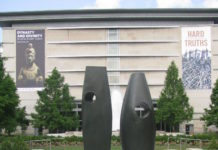Trending Now
French / Français
La consommation d’alcool et de nicotine en hausse chez les adolescents...
Les données couvrant les trois régions révèlent que plus d’un jeune de 15 ans sur deux a expérimenté l’alcool, tandis qu’un adolescent sur cinq...
Lancement d’un projet de suivi et reporting en matière de devoir...
Photo credit: DiasporaEngager (www.DiasporaEngager.com).
Industrie automobile (SURTITRE) Un nouveau projet de "Suivi et reporting en matière de devoir de vigilance dans l’industrie...
GLOBAL DIASPORA NEWS
DA maintains opposition as Select Committee adopts amendments to BELA Bill
Photo credit: DiasporaEngager (www.DiasporaEngager.com).
Note to editors: Please find attached Afrikaans and English soundbites by Delmaine Christians MP.
Despite some welcome amendments, the DA...
Continuação de tempo fresco com céu pouco nublado nesta 6ªfeira em...
Photo credit: DiasporaEngager (www.DiasporaEngager.com).
O Instituto Nacional de Meteorologia(INAM) prevê o seguinte estado do tempo para esta sexta-feira(26), 732º dia em Emergência de Saúde Pública...
African Diaspora Leaders
No Place to Make a Vote of Thanks
Photo credit: DiasporaEngager (www.DiasporaEngager.com).
On the long tradition of Black third-party activism.
By Marc Blanc, HNN —
From its start on June 5, 2023, Cornel West’s chaotic...
Putin, Trump and Netanyahu unveil the terrifying perils of strongman rule
Photo credit: DiasporaEngager (www.DiasporaEngager.com).
By Thom Hartmann —
The most amazing thing about Donald Trump’s current criminal trial is that it is happening at all. He...
Free Palestine Non-Violently — Vantage Point Vignette by Dr. Ron Daniels
Photo credit: DiasporaEngager (www.DiasporaEngager.com).
Vantage Point VignettesComments and Commentary by Dr. Ron Daniels
A determined new multiracial, multireligious generation of college and university students, including a...
The stunning rebirth of the American labor movement
Photo credit: DiasporaEngager (www.DiasporaEngager.com).
The pendulum is swinging toward countervailing power.
By Robert Reich —
On Friday, Volkswagen employees in Chattanooga, Tennessee, voted overwhelmingly to join the...
The leader of Papua New Guinea criticizes Biden’s ‘Cannibals’ comment.
Photo credit: DiasporaEngager (www.DiasporaEngager.com).
Twice last week, President Biden suggested without evidence that his uncle had been eaten by cannibals there after his plane went...
BUSINESS, FINANCE & ECONOMY
Immigration, Brain Drain & Refugees
Mo Farah, Olympic Gold Medalist, to Make Landmark Visit to Kenya...
Photo credit: DiasporaEngager (www.DiasporaEngager.com).
Nairobi/Geneva – The International Organization for Migration (IOM)'s first Global Goodwill Ambassador Sir Mo Farah will be in Kenya for his...
Philanthropy, Fundraising & Humanitarian
UNRWA committed to implement independent review recommendations
Commissioner-General Philippe Lazzarini briefed journalists in New York a day after the independent review panel published its findings. Former French Foreign Minister Catherine Colonna spearheaded...
Desperate Afghan returnees from Pakistan face uncertain future: IOM
According to IOM, in the past two months alone, nearly 375,000 Afghans left Pakistan, primarily utilizing the Torkham and Spin Boldak border crossings, near...
World News in Brief: South Sudan tax impositions, Somalia flash floods,...
“Until they are released, we will not be able to conduct many of our activities in support of the communities in need across the...
World News in Brief: Nigeria airstrikes condemned, supporting Venezuelan migrants and...
OHCHR issued a statement deploring the latest strike – the fourth since 2017 – which took place in Kaduna state in the north on...
Global Refugee Forum opens amid ‘crisis of humanity’
The world’s largest gathering dedicated to refugee issues, the Forum is co-hosted by UNHCR and Switzerland and convened by Colombia, France, Japan, Jordan and...
Global Refugee Forum ends with bold pledges, solutions for displaced
Speaking at the closing of the Global Refugee Forum, the Secretary-General said that protection and help for these most vulnerable of people, was “an...
OTHER LANGUAGES (SPANISH, FRENCH, INDONESIAN, BRAZILIAN, ETC.)
PMA leva auxílio alimentar a centrais da educação inclusiva na Guiné-Bissau
Uma iniciativa conjunta do Programa Alimentar Mundial, PAM, Governo da Guiné-Bissau e a organização não governamental, Humanity & Inclusion expande acesso das crianças com...
La diáspora venezolana en Colombia aporta más de 500 millones de...
En 2022, los migrantes y refugiados venezolanos en Colombia generaron un impacto económico en ese país equivalente a 529,1 millones de dólares EE.UU. de...
PROPHETIC NEWS
Sustainability, Climate & Environment
Polluting rivers, beaches and the ocean: How can Trinidad solve its...
The Maraval river winds its way through Port of Spain, the capital of Trinidad & Tobago, reaching the sea at Invaders Bay, the evocative...
SCIENCE, TECHNOLOGY & RESEARCH
Conflict, Peace & Security
Lifestyle, Beauty, Culture & Opinion
WIll Israel-Iran Conflict Spiral Out of Control — or Will Both...
Photo credit: DiasporaEngager (www.DiasporaEngager.com).
The geopolitical tensions between the Islamic Republic of Iran and the State of Israel have long been a focal point of...
WATCH: Trinidad fights back against a plastic invasion |
Small Island Developing States are particularly vulnerable to plastic pollution. As well as coping with a tsunami of waste washes up on their beaches...
















































































